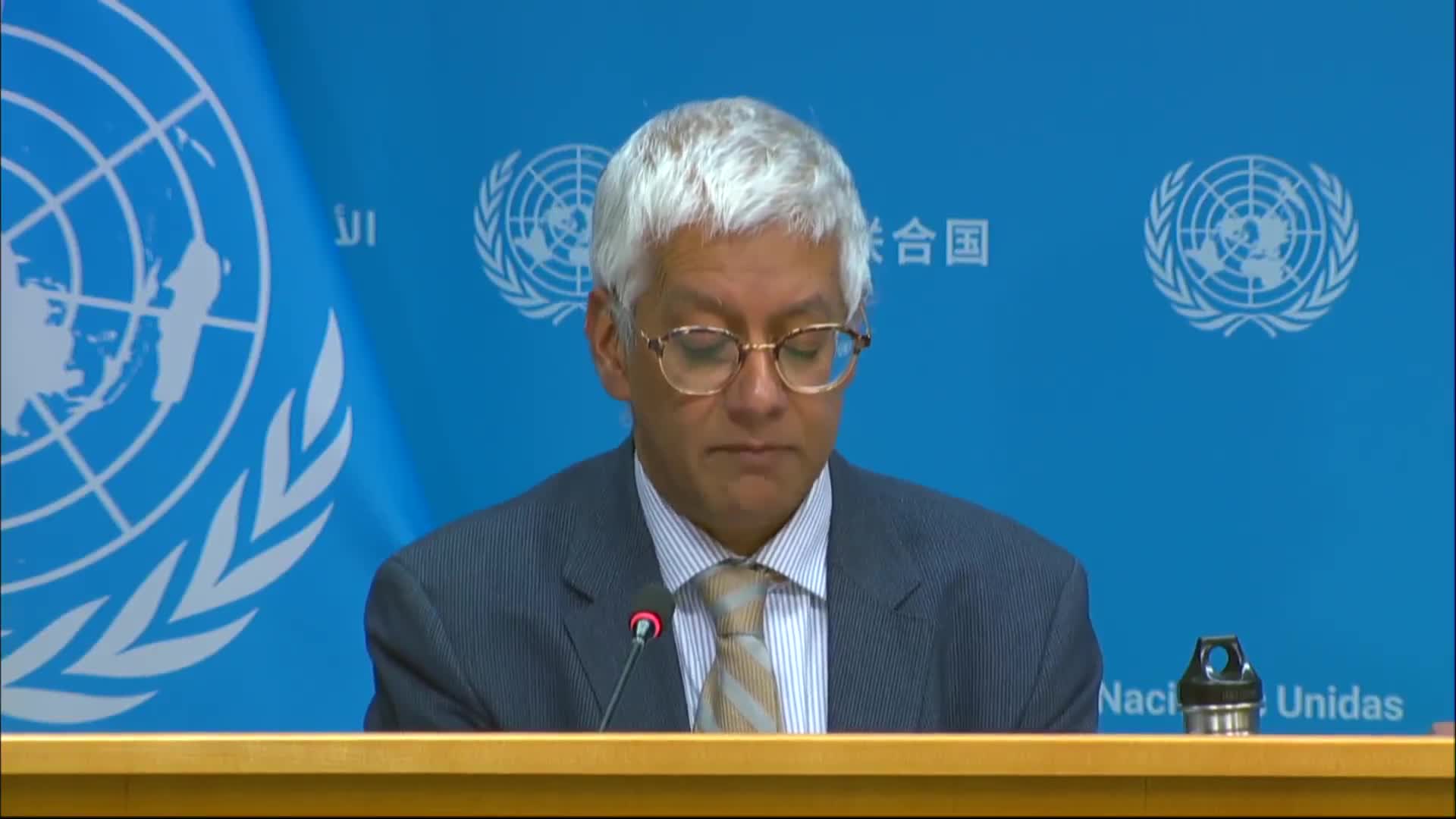U.N. says Gaza has received tens of thousands of tonnes of aid but needs remain "immense" as crossings stay closed
Get AI-powered insights, summaries, and transcripts
Subscribe
Summary
The U.N. reports more than 37,000 metric tons of aid reached Gaza since the ceasefire but says only two crossings currently operate and many areas remain inaccessible, leaving shelter and food needs acute. Agencies say they have materials ready to assist up to 1.5 million people once impediments are removed.
The U.N. spokesperson, Farhan, said the United Nations and partners have delivered more than 37,000 metric tons of aid to Gaza since the ceasefire but warned that "people's urgent needs are still immense with impediments not being lifted quickly enough."
Farhan said entry continues to be limited to only two crossings — Kerem Shalom (Kerem Abu Salem) and Kissufim — with no direct access from Israel to northern Gaza or from Egypt to southern Gaza. He added that some supplies and non‑governmental organization staff have been denied entry.
The spokesperson described shelter conditions as dire: "Most displaced people remain in overcrowded, makeshift sites, many of which were established spontaneously in open or unsafe areas," and said hundreds of thousands of families face the rainy season without adequate protection. U.N. partners working on shelter told the briefing that, once impediments are lifted, they have enough materials in the pipeline to meet most needs for nearly 1,500,000 Palestinians requiring such assistance.
On food, the World Food Programme has "reached over 1,000,000 people with food distributions, hot meals, bakery support, fortified snacks for children, expanded nutrition services, and digital cash assistance," Farhan said, adding that WFP expanded storage capacity to three warehouses, reopened key roads and reinforced retail networks to sustain assistance.
Farhan cited a geospatial analysis by the Food and Agriculture Organization and the U.N. satellite centre showing widespread damage to agriculture: "Only 13% of cropland in the Gaza Strip has not been damaged, and most of it remains inaccessible because it is located in areas where the Israeli military remains deployed." The analysis, the spokesperson said, found between "79 to 89% of greenhouse areas, agricultural wells, and farming infrastructure have been damaged," and nearly 89% of orchard trees — especially olive trees — have been damaged or destroyed.
The U.N. description distinguishes between the scale of aid delivered and remaining access constraints: agencies report stocks and logistics in the pipeline but say deliveries to meet needs depend on opening additional crossing points and resolving security and administrative impediments.
The U.N. briefing did not specify whether additional crossings would be opened or when more consistent humanitarian access might be restored.
